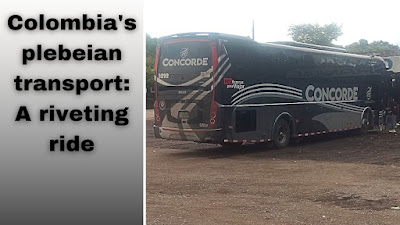[For an audio/vlog version of this story, click here.]
Stress, especially of the mental variety, is seen as something to be avoided for our overall well-being.
At chronic levels, it can lead to anxiety, depression or other difficult-to-overcome afflictions of the mind.
 |
| Having less stress is a good thing in general. This doesn't mean we shouldn't push ourselves, though. |
This doesn't need to be of an elite-athlete variety. It can be a case of just being active enough to get the heartbeat up a few notches — a brisk walk, some floor exercises at home, even energetically cleaning the house.
Incorporating such physical movements into one's daily routine doesn't appear too complicated, in theory.
However, with all the technological advancements over the decades leading to an increase in sedentary yet no less demanding and time-consuming forms of employment, some people find it hard to fit in physical activity to get that endorphin, feel-good boost. (OK, some are simply lazy, too.)
Indeed, it's a double negative that doesn't produce a positive (mathematics isn't always helpful in real life). The sedentary but demanding employment, stressful in its own right, can leave one with little time and desire for exercise, thereby compounding the stress.
I can only assume that trying to raise a young family alongside all this makes the situation even more problematic. On the flip side, it might provide some welcome comfort, focus and strength.
Otherwise engaged
Whatever the case, for all of the above, I can't say I'm really having to deal with them right now.As a single, childless man, the raising of a family is not a factor. (Although, one has had complications of late with the odd mentally straining frenemy.)
As for work, while this year has been particularly troubling in terms of a steady income, the positive is that I don't have the time-consuming, stress-inducing, sedentary employment as a concern. (Do note, with my current skill set, the careers in which I could earn the most are those where one spends a lot of time at a computer.)
This lack of paid employment that would see me tied to one place for hours on end means that I have plenty of time to get out and about. OK, I'm not running marathons but I'm usually on my feet moving more than I'm sitting still.
'It's like I'm in early-midlife retirement, minus any pension.'The generous me-time also allows for what I feel is a cathartic, relaxing mealtime, in that I get to cook my own meal — I generally just need one — almost every day.
In one sense, it's like I'm in early-midlife retirement, minus any pension of course. Thus, it must be temporary, unless I come into a lot of money soon.
And this is the crucial issue here. The consequences of being economically inactive mean it's not a carefree time. While I'm managing my financial affairs for now, it is, to state the obvious, unsustainable in the mid to long term.
It's one of those scenarios where my back isn't completely against the wall yet. It's why I'm still quite picky about the work I'm willing to do.
As for returning to full-time employment, I would have to be well-remunerated to give up my independence. For whatever I may gain in financial recompense, previous working-for experiences tell me that it comes at a significant stress cost.
Stress test
However, not all mental anguish is inherently bad. Stress leading to anxiety or depression is one thing, challenging oneself to expand knowledge or learn a new skill is quite another.It's like physical activity. When we push ourselves hard, it's taxing on both body and mind. We can even overdo it to the point of burnout and injury. Yet, not doing it will most likely result in a myriad of far worse health complications sooner or later.
So, with both physical activity and workouts for the mind, it's about finding the balance.
Now, I must say that I feel that my mental health is fairly sound.
Yes, this fallow paid-employment period leaves me with much thinking time. And overthinking can be dangerous for the mind. However, when I'm not distracted by technology or barrio temptations — socialising is important — it also offers plenty of beneficial reading time.
And even with all my free time, I still wish I had more hours in the day to read — I am a slow enough reader — and acquire new knowledge. One can never know enough. And one can never know it all.
While all this is, on the whole, keeping stress at bay, it's not like I have no preoccupations. We all do, of course.
Also, right now, it's not a case of, to borrow from the title of a school book I once used, less stress, more success; success measured in monetary terms this is. It could be said it's more like less stress, less success.
Nonetheless, I'm certainly not searching for ways to unnecessarily increase my stress levels.
I want to be excited about and stimulated by my next challenge, not stressed out about it. Ever the idealist.
__________________________________________________________
Listen to The Corrigan Cast podcast here.
Facebook: Wrong Way Corrigan — The Blog & IQuiz "The Bogotá Pub Quiz".


